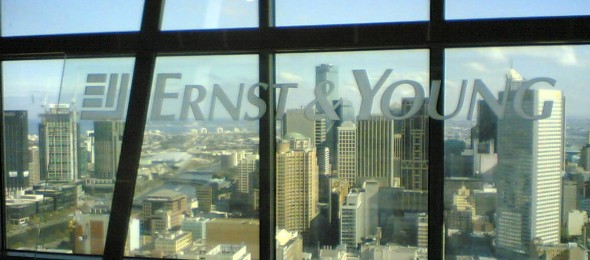In November, the Ninth Circuit Court of Appeals heard oral arguments in Morris v. Ernst & Young, No. 13-16599. In the case, a federal judge in San Jose dismissed a putative wage-and-hour class action that was brought by two former Ernst & Young LLP workers in California. The Northern District of California judge ruled that the workers could not bring a lawsuit against their former employer due to the arbitration agreement each entered into with the company. The arbitral agreement stated all covered employment and other disputes must be arbitrated separately.
With regard to the employees’ claim that their right to engage is collective action may not be waived under Sections 7 and 8 of the National Labor Relations Act (“NLRA”), the Northern District of California stated:
Plaintiffs also relies on the National Labor Relations Board’s (“NLRB”) decision in D.R. Horton, 357 N.L.R.B. No. 184 (2012), for the proposition that right to collective action is also nonwaivable under Sections 7 and 8 of the NLRA. In D.R. Horton, the NLRB determined that “an agreement that precludes [employees] from filing joint, class, or collective claims addressing their wages, hours or other working conditions against the employer in any forum, arbitral or judicial . . . unlawfully restricts employees’ Section 7 right to engage in concerted action for mutual aid or protection, notwithstanding the [FAA], which generally makes employment-related arbitration agreements judicially enforceable.” 357 NLRB No. 184 at 1. Both the Eighth Circuit and at least one district court in this circuit, however, have rejected the NLRB’s interpretation of the NLRA on the grounds that it is inconsistent with the Supreme Court’s interpretation of the FAA. Owen, 702 F.3d at 1054 (declining to defer to the NLRB’s interpretation of Supreme Court precedent); Jasso, 879 F. Supp. 2d at 1047 (“[T]here is no language in the NLRA . . . demonstrating that Congress intended the employee concerted action rights therein to override the mandate of the FAA.”).
In Jasso, the court held that “[b]ecause Congress did not expressly provide [in the NLRA] that it was overriding any provision in the FAA, the Court cannot read such a provision into the NLRA and is constrained by Concepcion to enforce the instant agreement according to its terms.” 879 F. Supp. 2d at 1048. The court reasoned that “the broad language in Concepcion . . . articulates a strong policy choice in favor of enforcing arbitration agreements and thereupon holds that class waiver provisions should not be stricken or render the agreements unenforceable.” Id. Here, the court declines to defer to the NLRB’s interpretation of the NLRA in D.R. Horton because, although the NLRB is charged with interpreting the NLRA, it is not charged with interpreting the FAA. When an NLRB decision “trenches upon a federal statute or policy outside the Board’s competence to administer, the Board’s remedy may be required to yield.” Hoffman Plastic Compounds, Inc. v. N.L.R.B., 535 U.S. 137, 147 (2002). “[C]ourts do not owe deference to an agency’s interpretation of a statute it is not charged with administering or when an agency resolves a conflict between its statute and another statute.” Ass’n of Civilian Technicians, Silver Barons Chapter v. Fed. Labor Relations Auth., 200 F.3d 590, 592 (9th Cir. 2000). Based on “the strong policy favoring arbitration [whereby] doubts are to be resolved in favor of the party moving to compel arbitration,” Moses H. Cone Mem. Hosp. v. Mercury Const. Corp., 460 U.S. 1, 24 (1983), the court declines to defer to the NLRB’s decision in D.R. Horton.
After the court granted Ernst & Young’s motion to compel arbitration and dismissed the case, the workers filed an appeal with the Ninth Circuit. A recording of the recent hearing is now available online.
Stay tuned to Disputing for future developments in this case!
Photo credit: Joi / Foter.com / CC BY














